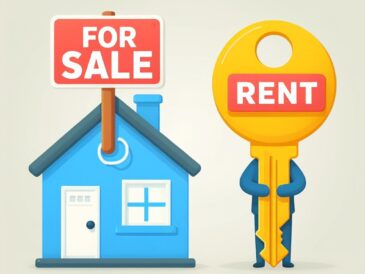In recent years, the concept of smart homes has rapidly gained momentum, transforming the way we live, work, and interact with our living spaces. From voice-activated assistants to connected appliances and automated security systems, technology is revolutionizing the real estate industry and reshaping the way we think about home design, functionality, and convenience. The rise of smart homes represents a seismic shift in the way we perceive and interact with our living spaces, offering unprecedented levels of comfort, efficiency, and control. Here’s how technology is driving the evolution of smart homes and revolutionizing the real estate market:
- Integration of Smart Devices: Smart homes are equipped with an array of connected devices and sensors that seamlessly integrate with one another to create a cohesive and interconnected living environment. From smart thermostats that adjust temperature settings based on your preferences to smart lighting systems that adapt to your daily routine, these devices work together to enhance comfort, convenience, and energy efficiency.
- Voice-Activated Assistants: Voice-activated assistants, such as Amazon Alexa and Google Assistant, have become central to the smart home experience, allowing users to control various devices and access information using voice commands. Whether it’s adjusting the thermostat, playing music, or ordering groceries, voice-activated assistants offer hands-free control and personalized interaction, making everyday tasks easier and more intuitive.
- Connected Appliances: Smart homes are equipped with a wide range of connected appliances, including refrigerators, ovens, washing machines, and security cameras, that can be monitored and controlled remotely via smartphone apps. These appliances offer advanced features such as remote access, scheduling, and energy monitoring, allowing users to save time, conserve resources, and enhance home security.
- Home Automation Systems: Home automation systems allow users to automate routine tasks and create customized schedules for lighting, heating, cooling, and security systems. Whether it’s setting the thermostat to adjust automatically when you leave for work or scheduling lights to turn on and off while you’re on vacation, home automation systems offer unparalleled convenience and peace of mind.
- Energy Efficiency and Sustainability: Smart homes are designed to be energy-efficient and environmentally friendly, with features such as smart thermostats, energy-efficient appliances, and solar panels that help reduce energy consumption and lower utility bills. By optimizing energy usage and promoting sustainability, smart homes contribute to a greener and more sustainable future.
- Enhanced Security and Safety: Smart home technology includes advanced security systems that provide real-time monitoring, alerts, and remote access to surveillance cameras, door locks, and alarm systems. These features offer enhanced protection against intruders, fire, and other emergencies, giving homeowners greater peace of mind and control over their safety.
- Personalized Home Entertainment: Smart homes offer personalized home entertainment experiences, with features such as smart TVs, streaming media players, and multi-room audio systems that provide seamless access to a wide range of entertainment options. Whether it’s streaming your favorite movies and TV shows or listening to music in every room, smart home entertainment systems cater to individual preferences and lifestyles.
- Increased Property Value: The integration of smart home technology can increase the value of a property and make it more attractive to prospective buyers. Homes equipped with smart devices and automation systems offer a modern and desirable living experience that appeals to tech-savvy buyers seeking convenience, comfort, and connectivity.
In conclusion, the rise of smart homes represents a transformative shift in the real estate industry, ushering in a new era of connectivity, convenience, and customization. From integrated smart devices and voice-activated assistants to energy-efficient appliances and home automation systems, technology is revolutionizing the way we live and interact with our homes. As smart home technology continues to evolve and become more accessible, it’s poised to reshape the way we think about home design, functionality, and lifestyle for years to come.



